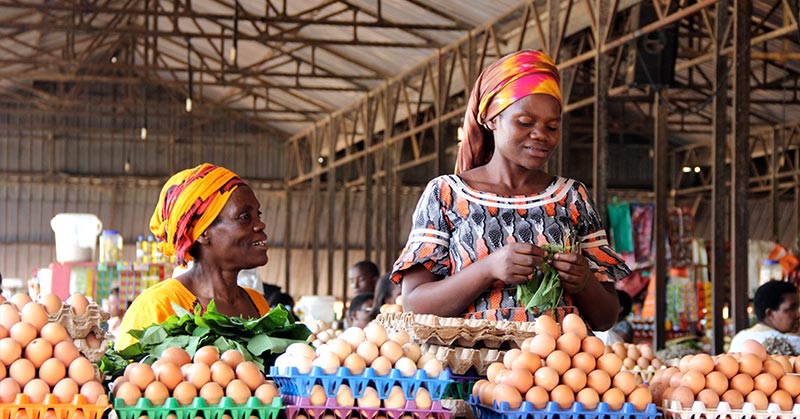A clean nation is one where the ecosystems and environment are held in high esteem and toxic pollutants affecting the air, water, and land are dealt with accordingly. A clean nation chooses sustainable and renewable sources of energy over fossil fuels, a process that is usually undertaken gradually.
Global warming is accelerating at an alarming rate every day, partly because most people are convinced that the effects of climate change can never be reversed on a global scale. To them, the earth has degenerated to a condition where small efforts have no relieving effect, so why waste our time trying? This conviction is wrong and highly destructive. There are 195 countries in the world, and if each one unites as a nation to go green and go clean, our planet would ultimately find nurture, healing, and recovery.
Rwanda is a country in East Africa and one of the tiniest nations in the African mainland with a population of 12 million. Despite facing a horrific and genocidal civil war between 1990 and 1994, Rwanda has grown and recovered to become the cleanest country in Africa and one of the world’s leading nations in green growth, as declared by the UN-Habitat [1].
With the added advantage of a small population, Rwanda has succeeded where many nations have failed and others are struggling. This intelligent and resourceful nation has integrated green growth and several climate change resilience policies not only to improve the quality of the environment but also to boost her economy.
Read: Kenya Installs the First Solar Plant That Transforms Ocean Water Into Drinking Water
A green economy
The Rwanda Green Fund (FONERWA) is a ground-breaking environmental and climate change investment fund fueling green economic growth in the country. The Green Fund invests in public and private businesses that have the potential to drive transformative change in line with Rwanda’s visions as a green nation. With approximately $100 million raised since its inception, it has become Africa’s largest eco-friendly investment fund.
Solar energy domination and sustainable tourism
Switching completely to solar energy will significantly reduce any country’s carbon footprint. Rwanda has had funding issues regarding this particular solution, but they are making a stand through the Rwanda Climate Fund, aiming to award at least $25 million to an off-grid solar project that would promote the use of solar energy in the country and East Africa as a region.
There are also eco-friendly accommodations and structures spreading throughout the country to boost sustainable tourism. You have several choices of lodges and apartments that use 100% clean energy, such as a hotel that’s completely solar-powered and uses eco-friendly teak wood in Kigali, the nation’s capital.
Ban on plastic
One of Rwanda’s most important strategies in green growth was a total ban on the single-use of plastic bags in 2008 [2]. A study conducted by Rwanda’s Ministry of Environment reported that the use of plastic was impeding agricultural progress, killing wildlife, limiting production, and contaminating the environment.
In Rwanda today, bags and packaging materials are manufactured with biodegradable materials such as paper, banana leaves, fabric and papyrus (a textile fiber similar to thick paper).
Kigali, Rwanda’s capital is one of the cleanest cities in the world since there’s not a minuscule rip of plastic in any corner. A violation of the plastic ban could earn you serious jail time and cleanliness is almost a religion in the Republic of Rwanda.
Read: This Smart Forest City in Mexico Will be 100% Energy Self Sufficient
Massive reforestation efforts
Rwanda has pulled out strong forces to see that 29.8% of her landmass was covered forestry at the start of this decade. According to the World Economic Forum, Rwanda got to her clean status partly because of her relentless goal to “increase forest cover to 30 percent of total land area by 2020 [3].” It’s 2020 now, and the nation has nearly achieved her goal with massive tree-planting projects and activities. Following the last planting season, the country now has “38,119 hectares of agroforestry, 4,800 hectares of classic forestry, and 225,440 fruit trees. This is in addition to some 670 hectares of degraded forests, which rehabilitated.”
Trees are an everlasting source of oxygen, and there’s no better way to purify the air and purge it of toxins than to plant more trees. Rwanda got this right in every sense.
Umuganda
Umuganda means “coming together in common purpose” in Rwandan. The citizens are mandated by the government to participate in cleaning their neighborhoods and districts to keep the entire country clean. This is done on the last Saturday of every month and is monitored by the police. Rwanda is so clean because everyone cleans. Sanctions are tough for Rwandans who do not join in the activities as they may be fined to pay 5,000 Rwandan francs, approximately $5.
Ecosystem and park restoration
Rwanda has a thing for mountain gorillas. The country understands how important the earth’s natural ecosystems are in maintaining its vitality. In larger countries, poachers and hunters would have been fined, sanctioned or arrested if they violated laws regarding animal protection. However, Rwanda is too small and doesn’t have the luxury of being able to practically punishing people. Instead, they try to reform those who break the law.
The country reformed former poachers and hunters to become protectors of wildlife and natural resources, serving as forest guards, tour guides and porters. Mountain gorillas and several other wildlife species are thriving once again.
Depleted forests have been restored and upgraded to protected national parks. This was done to preserve and repopulate the natural flora and fauna that nearly went missing from the country in the previous decade. The parks are so beautiful and rich in sights that tourism has become a booming venture in Rwanda, where 300 million USD in revenue was generated between 2014 and 2015 [3].
Rwandans took their country into their hands and worked in unity to build a clean nation where the air is fresher, the water is purer, the land is decontaminated, ecosystems are thriving and the economy is booming.
It’s in the little things.
- Jeff Bogle. How Rwanda Became One of the Cleanest Nations on Earth. Reader’s Digest. https://www.rd.com/culture/rwanda-cleanest-nation/?trkid=soc-rd-facebook. Retrieved 16-01-2020
- UNEP. SINGLE-USE PLASTICS. https://wedocs.unep.org/bitstream/handle/20.500.11822/25496/singleUsePlastic_sustainability.pdf?isAllowed=y&sequence=1.. Retrieved 16-01-2020
- Vincent Biruta. 5 ways Rwanda is leading on green growth. We Forum. https://www.weforum.org/agenda/2016/05/5-ways-rwanda-is-leading-on-green-growth/. Retrieved 16-01-2020
- https://www.fonerwa.org/

